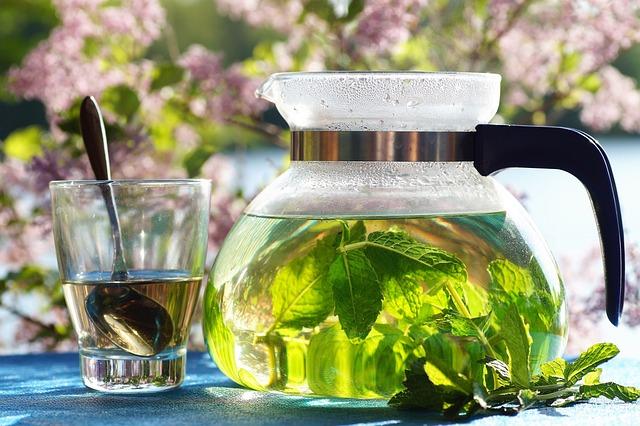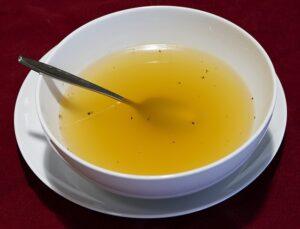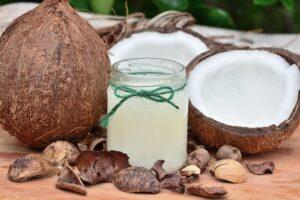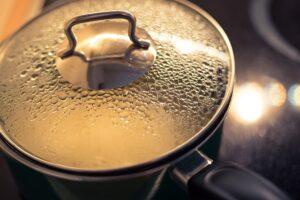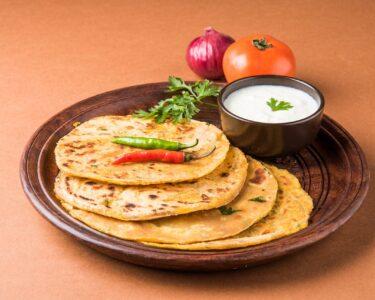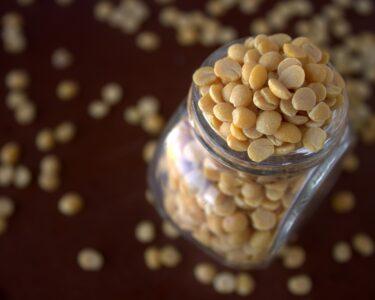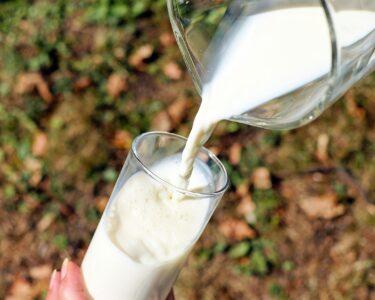Managing Pancreatitis is a very challenging condition taking its symptoms into consideration. Abdominal pain, digestive issues, fatigue, and malnutrition are major symptoms that drain the person suffering from Pancreatitis both physically and emotionally. It is emotionally draining for the caretakers and family members to take care of the person who is ill with Pancreatitis. The primary hurdle in planning a pancreatitis diet is the unique response individuals have to various foods due to the condition’s variability. Ensuring nutritional adequacy while avoiding triggers and maintaining palatability poses a challenge.
A healthy Indian diet for Pancreatitis plays a crucial role in soothing inflammation, healing and recovery from this condition. Indian diet plan for Pancreatitis consists of dietary restrictions to avoid the triggers as well as nourishing meals to get proper nutrition for well-being. Let us understand, step by step a detailed Indian diet plan for managing Pancreatitis.
What is Pancreatitis?
Pancreas is a gland present behind the stomach and below the ribcage. It plays a crucial role in the digestion of fats & starches and blood sugar control in our bodies. In pancreatitis, Pancreas gets inflamed making it look red and swollen.
Men are more prone to Pancreatitis compared to Women. According to the latest statistics, the Prevalence of Pancreatitis is more in South India compared to Northern India. As per the survey, for every 1 lakh population, approx 110-200 individuals are suffering from Pancreatitis.
Pancreatitis can be classified as Acute Pancreatitis and Chronic Pancreatitis.
Acute Pancreatitis:
In a healthy Pancreas, the proteolytic enzymes are present in inactive forms and get activated in the intestine during the digestion process. Acute Pancreatitis develops when proteolytic enzymes get prematurely activated and release in Pancreas. These enzymes cause the breakdown of Pancreatic tissues and lead to the formation of toxic products in the pancreas.
- Trypsin and chymotrypsin are some digestive enzymes present in the pancreas.
- Insulin and Glucagon hormones are released from Pancreas.
Causes:
Gallstones, Alcohol Abuse, Abdominal surgery, Abdominal Trauma during accidents, Elevated triglycerides and cholesterol, cigarette smoking.
Symptoms:
- Continuous or Intermittent pain of varying intensity in the upper abdominal regions that radiates back. The pain gets worsened with the ingestion of food.
- Swollen and tender abdomen.
- Nausea and Vomiting especially after large meals and alcohol consumption.
- Flatulence
- Diarrhea
- Steatorrhea – excessive loss of fat from stools.
- Sweating, Fever, Mild Jaundice and Rapid Pulse. Breathing difficulties.
Duration:
Acute Pancreatitis can last for 1-2 weeks.
Complications:
If left untreated Acute Pancreatitis can lead to Low blood pressure, Heart failure, Kidney failure, lung infarction, Diabetes and Cysts in Pancreas.
Chronic Pancreatitis:
Chronic Pancreatitis is caused by repeated Acute Pancreatitis attacks or prolonged alcohol abuse, which acts as an intestinal irritant and leads to recurrence. Chronic pancreatitis also induces scarring and damage to pancreatic tissue, impairing its capacity and function.
Causes:
Neglect of Acute Pancreatitis, Alcohol abuse, Excessive Iron in the blood, Pancreatic Cancer, & Unknown factors.
Symptoms:
- Severe Abdominal Pain Malabsorption.
- Weight loss.
- Steatorrhea – excessive loss of fat from stools.
Duration:
Chronic Pancreatitis can persist for up to several years.
Complications:
Malnutrition and Pancreatic infections.
PS:
- The severity of the symptoms varies from moderate to intermittent to very serious in different cases,
- Both Acute and Chronic Pancreatitis require immediate medical attention and treatment. If you have any of the symptoms mentioned, consult a doctor for complete diagnosis and treatment.
- In severe cases and immediately after a severe attack, nil by mouth is recommended. IV fluids are given under the doctor’s supervision and later moved from a fluid diet to a soft diet depending on the patient’s recovery.
Indian Diet Plan for Pancreatitis
The main aim of the Indian Pancreatitis Diet is to minimize inflammation in the pancreas and support its repair and function. Let us understand 5 main principles for planning the Indian diet plan for Pancreatitis :
- Low-Fat Diet – High-fat diet can stimulate the pancreas to produce more digesting enzymes which can cause more inflammation and discomfort. Always choose a low-fat diet for avoiding the triggers like abdominal pain and vomiting. Use Medium-chain triglycerides (MCTs) as the primary fat source in Pancreatitis, which is present in Coconut oil. Choose low-fat protein sources like lean meats and low-fat dairy products. Include fruits and vegetables for making low-fat meals.
- Small and regular meals – Eating small and frequent meals throughout the day might help in minimizing pancreatic load and overstimulating pancreatic enzymes. Have 5-6 small meals than 2-3 large meals.
- Vitamins and Minerals – In Pancreatitis, there is calcium and vitamin B12 deficiency. Folic acid & Fat-soluble vitamin malabsorption is also very common in Pancreatitis. Planning a meal to include all these vitamins and minerals is very essential in an Indian pancreatic diet.
- Limit sugar and refined carbohydrates – Sugar and processed carbohydrates must be avoided since they can lead to sugar spikes, which can stress the pancreas and cause inflammation.
- Hydration – Hydration is a very important factor in the Pancreatic diet because dehydration causes pancreatic enzymes to become more concentrated causing more potential harm. Drinking enough water will help with Pancreatitis. Alcohol and Caffeine also contribute to dehydration, so both of them must be avoided.
Do’s and Don’ts in Indian diet plan for Pancreatitis
Include foods which are good for healing pancreatitis in the diet and exclude foods which are harmful to pancreas health. The following table lists some of the foods which can be included in the pancreatitis diet and foods which must be avoided during pancreatitis.
| Included in Indian Diet Plan for Pancreatitis | Excluded in Indian Diet plan for Pancreatitis |
| Whole grains like brown rice, quinoa, Steel cut Oats, whole wheat. | High Fat meals like fried foods (French fries, Papads, Namkeens, Chats, shawarmas, pizza, burgers etc), Red meat, Organ Meats, Full Fat dairy products, Mayonnaise, Margarine |
| Fruits (Non citrus) like Apples, Bananas, watermelon, pomogranetes, Blue berriesand Pears | Alcohol |
| Vegetables (Non- starchy) like cabbage,carrots, Beans, cauliflower,Broccoli, Sweet Potatoes, Lauki, Turai . | Caffeine and Tea |
| Low Fat protein sources – egg whites, lean meats like fish, dals which are easier to digest | Carbonated beverages like Cola etc. |
| Low Fat Dairy products, Rice milk,Soy milk and soy products. | Sugary and Processed foods like Pastries, Donuts, Candies, Cookies, Ice creams, chips etc. |
| Healthy Fats in modest amounts – Cconut oil, kachi ghani oil ,rice bran oil and Olive oil ((only 3 teaspoon per day.)
Nuts like Almonds (Mamra Badam) and Ghee (1 teaspoon per day) |
Spicy foods |
| Hydration – Plenty of water, clear soups and broths, Herbal Tea like ginger, chamomile, mint tea. | Packaged foods like biscuits and Refined foods like Maida |
| Home made snack by murmura, poha and sabudana. | Creamy soups and gravies. |
Foods which can amplify the healing process in Pancreatitis :
Apart from the doctor’s suggested enzymes, include these natural ingredients in your daily diet to fasten the recovery and healing of pancreatitis.
- Amla: Amla or Indian gooseberry is rich in antioxidants which have a soothing effect on the inflamed pancreas. 1 fresh amla thrice a week can improve Pancreatitis symptoms.
- Ginger: Ginger aids in digestion which is haywire in pancreatitis. It also relieves Abdominal pain and Nausea often experienced by individuals suffering from Pancreatitis. 1/2 teaspoon of ginger per day can be taken for Pancreatitis. It can be added to your soups or herbal tea.
- Garlic: The phytonutrient Allicin present in garlic has anti-inflammatory properties which cause a soothing effect on the inflamed pancreas. Garlic is high in sulfur content, thus it is advised to consume only one raw garlic pod per day.
- Turmeric: Curcumin present in Turmeric has a soothing effect in both acute and chronic Pancreatitis. But, it has laxative properties so in pancreatitis it is advised to consume less than half a teaspoon of turmeric powder per day.
- Ashwagandha or Indian Ginseng: The anti-inflammatory properties of Ashwagandha reduces stress & anxiety in pancreatitis. It also controls blood sugar spikes in diabetes as well as pancreatic diseases.
- Tulsi or Holy Basil: Less than one handful of Tulsi leaves has a soothing effect on pancreatitis. One can consume Tulsi juice by cleaning the fresh leaves and crushing it on the palms by rubbing or in mortar. For best results avoid heating Tulsi leaves or Juice.
- Indian Greens: Spinach and Coriander leaves have beneficial effects on Pancreatitis.
- Black plums or Jamun: The rich anti-oxidants present in Jamun help in recurring pains in Pancreatitis.
- Green Tea: Green Tea is rich in polyphenols which can help to heal the scarred pancreas. One cup of green tea is beneficial in healing Pancreatitis.
- Aloe Vera: Consuming fresh Aloe vera juice is helpful in relieving pancreatitis symptoms.
- Red Grapes: The high Resveratrol content which is a potent phytochemical present in red grapes produces good effects in the prevention of the irritation of the pancreas gland.
- Coconut Oil: Coconut Oil is rich in MCTs (medium chain triglycerides) which are beneficial in Pancreatitis. Not more than 3 teaspoons of coconut oil must be consumed in a day.
Frequently Asked Questions on Pancreatitis Diet
-
Is Papaya good for Pancreatitis?
Ans: While Papaya contains good digestive enzymes but since it is a laxative it must be consumed moderately in Pancreatitis. Overconsumption may cause Diarrhoea. One or two slices can be consumed once or twice a week.
-
Is curd good for Pancreatitis?
Ans: No, having thick curd may trigger pancreatitis. So, it is better to consume buttermilk instead of curd in case of Pancreatitis. Please take the advice of a gastroenterologist before adding buttermilk to the diet. In certain individuals, even buttermilk increases Pancreatitis flare-ups.
-
Is Honey good for pancreatitis?
Ans: Yes, Honey can be taken in Pancreatitis. 1 teaspoon of Honey per day is safe to consume in pancreatitis.
-
Is coconut water good for Pancreatitis?
Ans: Yes, in moderation. 100 ml of coconut water can be consumed twice or thrice a week.
-
Which liquids can be safely consumed in Pancreatitis?
Ans: Water, coconut water, Clean soups (vegetable or chicken), Rice kanji, Sago water, Herbal Teas and Green Tea can be taken for Pancreatitis. In case of vomiting and diarrhoea, ORS drinks can be consumed.
-
Which pulses can be consumed in Pancreatitis?
Ans: Indian Dals like Moong dal, Toor dal and Masoor dal can be safely consumed. Dals must be washed and soaked (min 30 min) before cooking. Other pulses must be taken as per individual tolerances as high fiber pulses can cause bloating and other digestive issues in certain individuals.
-
Which is the best way of cooking meals for pancreatitis?
Ans: Grilling, Steaming and Boiling are the best methods of cooking meals in case of pancreatitis. Avoid Deep Frying, Stir frying and sauteing.
-
Are citrus fruits good for Pancreatitis?
Ans: Citrus fruits, such as oranges, grapefruits, lemons, and limes, contain high levels of citric acid and can be relatively acidic. This acidity might not be well-tolerated by individuals with pancreatitis, especially during the acute phase when the pancreas is inflamed and sensitive. Citrus fruits could potentially irritate the digestive system and worsen symptoms like nausea, abdominal pain, and vomiting.
A few individuals after recovery, who are in transition to a normal diet can tolerate small amounts of citrus fruits. But, it is better to choose fruits which are gentle on the gut.
Sample Indian Diet Plan for Pancreatitis
The Indian diet plan for Pancreatitis includes a low-fat, moderate protein and complex carbohydrate meal plan for the day. The macronutrient requirement changes for every individual as per their nutrient requirements and underlying health conditions along with Pancreatitis.
| Meal Time |
DAY 1 |
DAY 2 |
DAY 3 |
| Early Morning (7AM) | A small glass of warm water with a dash of turmeric (optional, if tolerated). | A small glass of warm water with a touch of honey (optional, if tolerated). | A small glass of warm water with a dash of honey and a pinch of cinnamon (optional, if tolerated). |
| Breakfa(8AM) | Poha cooked with vegetables and mild spices. Herbal tea (non- caffeinated) | Idly/ Dosa with coconut chutney and sambar. | Oatmeal cooked with water and topped with chopped almonds and mashed banana Herbal Tea |
| Mid Day (11AM) | Boiled or steamed apple (without skin). | Boiled or steamed pear (without skin) | Mashed beetroot/ carrots/sweet potato |
| Lunch (12:30 PM) | Roti with well- cooked and mashed dal and a side of cooked spinach | Soft rice with well-cooked Dal and mashed vegetables. Add 1 egg white with the meal | Roti with well- cooked and mashed dal and well cooked beans, carrots, peas curry |
| Snack (4PM) | Clear vegetable soup. | Herbal tea (non- caffeinated). | Clear vegetable soup or clear chicken soup |
| Dinner (7PM) | Soft Khichdi with mashed vegetables. | Roti with mashed Tofu curry. | Vegetable pulao with buttermilk (only if tolerated) |
| Before Sleep (9 PM) | Warm cup of ginger water (If tolerated) | Warm chamomile tea. | A small cup of warm mint tea (non- caffeinated). |
PS:
- The above table shows only a sample Indian diet plan for Pancreatitis. Please consult a registered dietitian or certified Nutritionist for a tailored made diet plan for you.
- Please continue the medications prescribed by your doctor while following the diet.
- Supplements may be required for Vitamin B12, Calcium and Folic acid deficiency. Discuss with your doctor about the same and follow the advice.
- Always aim to consume a healthy and easily digestible meal in Pancreatitis.
- Eliminate foods which aggravate the symptoms.
Lifestyle Changes :
- Stop Alcohol consumption and cigarette smoking.
- Practice Yoga and meditation under a certified trainer.
- Try walking, Swimming or any other physical activity, with which you are comfortable for 30 minutes.
- Avoid eating outside as much as possible.
- Have a positive outlook towards life, you can discuss with a doctor and psychologist to help you feel better and deal with Pancreatitis.
- Try to socialize with people who are struggling with the same problem or dealing with the problem successfully. You will get motivation and ideas on how to deal with various issues in daily life with Pancreatitis.
- Sleep is very crucial for recovery from Pancreatitis. Sleep at least for 6-8 hours for better health.
Take Away
Pancreatitis is very challenging to manage when it comes to diet as the digestive is compromised due to an inflamed Pancreas. An Indian diet plan for pancreatitis focuses on gentle, easily digestible foods to alleviate symptoms and support healing. Emphasizing low-fat, mild, and nutrient-rich options is crucial. Breakfast can include dishes like Poha or Idly while lunches and dinners may consist of roti, khichdi, or vegetable-based curries. Snacks can involve boiled fruits or clear soups. Hydration is essential, and herbal teas like chamomile or ginger can be soothing. Avoiding spicy, fried, and fatty foods is crucial, and alcohol should be completely eliminated. Opting for small, frequent meals aids digestion. Customization is key, so consulting a registered dietitian or qualified nutritionist is important to create an effective and personalized Indian diet plan that addresses individual needs and preferences.
References :
1. https://www.ncbi.nlm.nih.gov/pmc/articles/PMC5241169/
2. https://www.niddk.nih.gov/health-information/digestive-diseases/pancreatitis/all-content#section5
3. https://www.niddk.nih.gov/health-information/digestive-diseases/pancreatitis/all-content
4.https://aspenjournals.onlinelibrary.wiley.com/doi/full/10.1002/ncp.10379
5. https://pubmed.ncbi.nlm.nih.gov/3362842/
6. https://pubmed.ncbi.nlm.nih.gov/10702999/
7. https://pubmed.ncbi.nlm.nih.gov/24393731/
8. https://www.ncbi.nlm.nih.gov/pmc/articles/PMC7211526/

